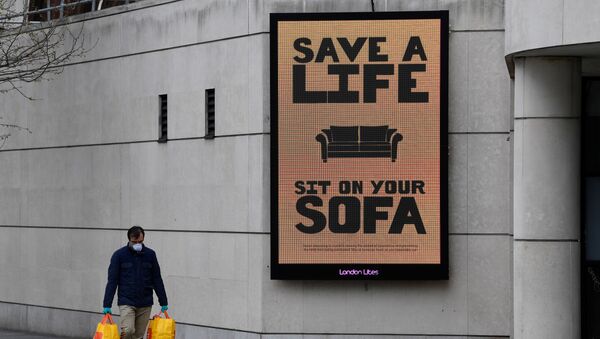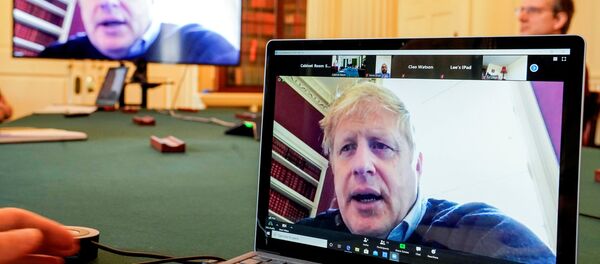In the long term the public could face more severe consequences than simply missing out on a few sunny days, as experts argue that prolonged isolation could lead to post-traumatic stress disorder. Other experts, however, remain optimistic about the effects of social distancing and the coronavirus pandemic could have on the public.
Academic Lowri Dowthwaite shares her view that post-traumatic growth is far more common than post-traumatic stress.
Sputnik: Do you think the British public is prepared for a long weekend of self isolation?
Lowri Dowthwaite: Well, I think it's going to be quite mixed in a way I suppose. Obviously, it's not what we're used to. For many people, it might be a time where normally they would be together with family and friends, they're going to have to spend a lot of time on their own. So understandably, it's really not going to be the same and quite difficult for some people. So I imagine, Easter celebrations are going to be a bit more sombre for many people.
On the other hand, I think a lot of people may be trying to make the most of time if they have young children as well, particularly if people are able to get out in the garden, maybe trying to do little Easter egg hunts and things like that. It's going to be quite different and I suppose what we need to do is help each other out as much as we can. How we do that those might depend on where you are and who's around you.
Sputnik: What happens after the self isolation period is over? A lot of people tend to worry about the idea of post-traumatic stress. You have written about the idea of post-traumatic growth. Can you tell us more about it?
Lowri Dowthwaite: Well, personal growth is something that we're not as aware of. We hear the term post-traumatic stress quite a lot. We tend to know a lot about stress and trauma. Not many people are aware of post-traumatic growth, but they have quite a lot of research around it. Basically, it's the flip side of PTSD [post-traumatic stress disorder]. And so, what it means is that actually, when we go through difficult times, although it can be very upsetting and we can feel perhaps traumatised or very stressed when we experience lots of adversity and crisis, it can also lead to positive changes. More often than not, it tends to be that people do come out to these situations better rather than traumatised. It's a very small percentage of people who do actually experience post-traumatic stress disorder in the clinical sense.
Sputnik: People often link the overuse of social media to poor mental health. Do you think technology that connects people is good for mental health in this time?
Lowri Dowthwaite: Absolutely. You know, I think we really need to embrace the technology and the fact that we have moved on so when you think about the flu pandemic in the 1900s; people didn't have the ability to connect as easily. So we have to absolutely make the most of that. And there's lots of research that supports the fact that speaking to people over the phone or on video chats. It's a good alternative.
Obviously it's not as great as being in the same room as somebody available to give someone a big hug or, you know, sit down and have a cup of tea with somebody, but it's a great alternative. And I think we have to embrace it and utilise it.




